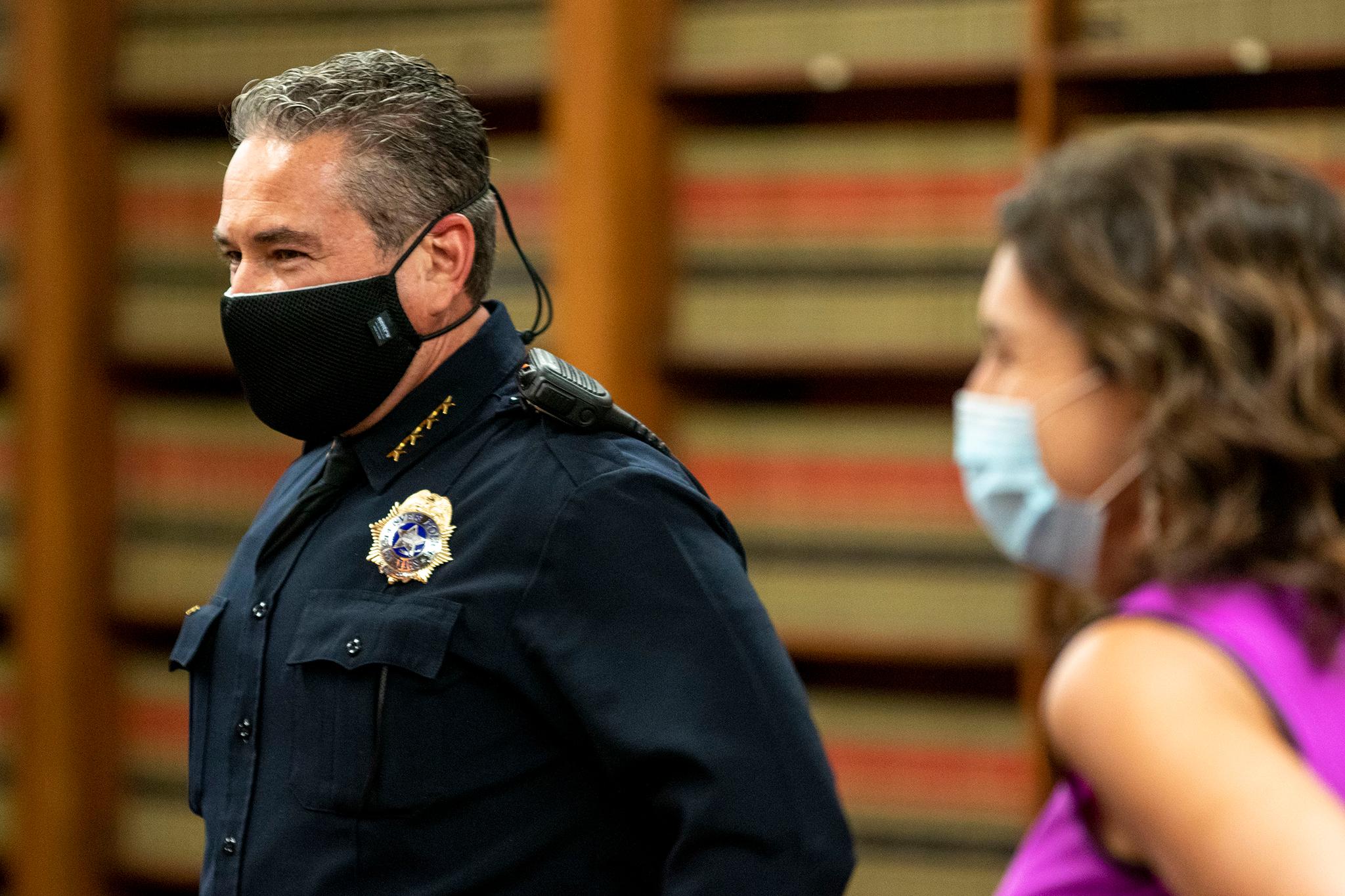We were curious if crime in Denver has changed because of the city's stay-at-home orders, so we took a dive into Denver Police's data of criminal offenses.
The numbers for April, the only full month where people were required to stay inside, were sometimes very high and very low. Most but not all of the peaks and valleys are related to the pandemic. A big change in drug possession charges are more likely related to a change in state law, for example.
Let's do the numbers.
? More vehicle thefts were recorded in April than in any other month since August 2017.
? Illegal gunfire was the second-highest recorded in a single month since January 2015 (the highest was last October).
? Burglaries recorded between January and the first week of May were up 30 percent from the same time frame in 2019. If you just look at April and the first week of May, they're up 50 percent since last year.
? Aggrevated assaults were the highest in April than any other month this year. The total, 207, was about the median for all months in 2019. Still, 2020 has so far seen 20 percent more of these crimes than at this point last year.
? There have been 30 percent fewer traffic accidents this year compared to the same time frame in 2019. If you just compare April and the first week of May, 2020's total is 50 percent lower than the same time frame in 2019. Hit-and-runs were also down, about 25 percent year-to-date in 2020 compared to 2019.
? Criminal trespassing was the lowest recorded in a single month since December 2018. It was down 25 percent in April and the first week of May of 2020 compared to the same time frame last year.
? Drug possession charges -- meth, heroin and cocaine -- were all at record lows in April. There were just 20 meth possession crimes in April 2020. In 2019 and 2018, these numbers never dipped below 90 in a single month. Most months recorded more than 110 meth possession crimes.
How do we explain the upticks?
Denver Police Chief Paul Pazen said his department is watching violent crime closely. He said aggravated assaults and illegal gunfire are related: Even though we haven't seen more homicides this year compared to 2019, he said any aggravated assault where a weapon is fired could become a murder. The difference between an assault and a homicide, he said, "is usually what you consider good luck or bad luck."
Pazen said assaults and weapons charges have risen in other cities around the U.S. as COVID-19 spread. He attributes the increase to people staying home, since investigations have shown many of these incidents aren't related. Some cases have been between family members, but they're not necessarily domestic violence. The data shows there were more domestic violence assaults in April than any other month in 2020, but that number, 42, is about the median for 2019.
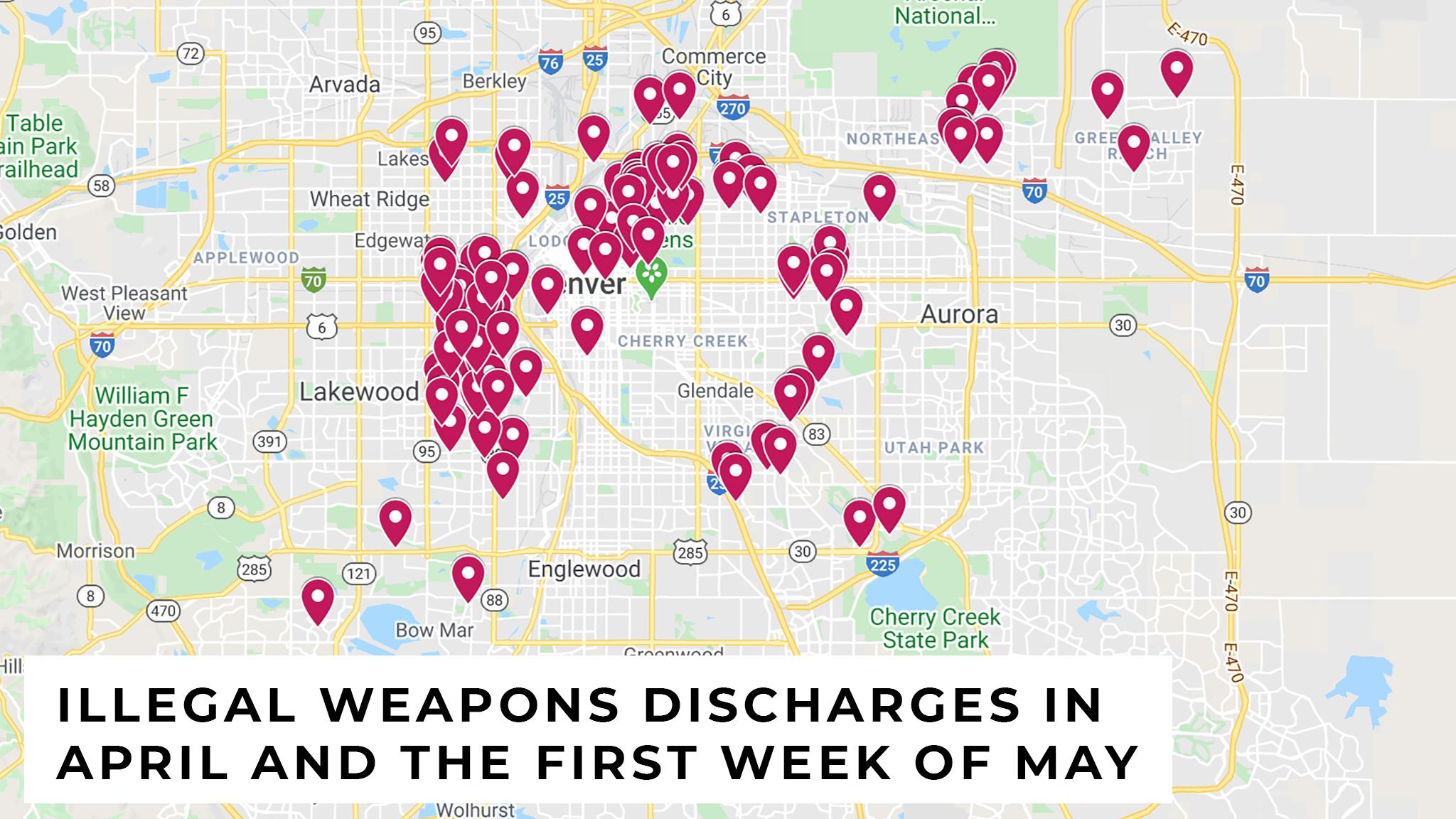
Pazen said he's worried emotional reactions to the virus and the ensuing economic downturn are behind higher crime numbers.
"There are some concerns," he said, "the fear, the anxiety, the stress are manifesting into violence."
The summer following the 2008 recession, he said, saw increases in the same crimes.
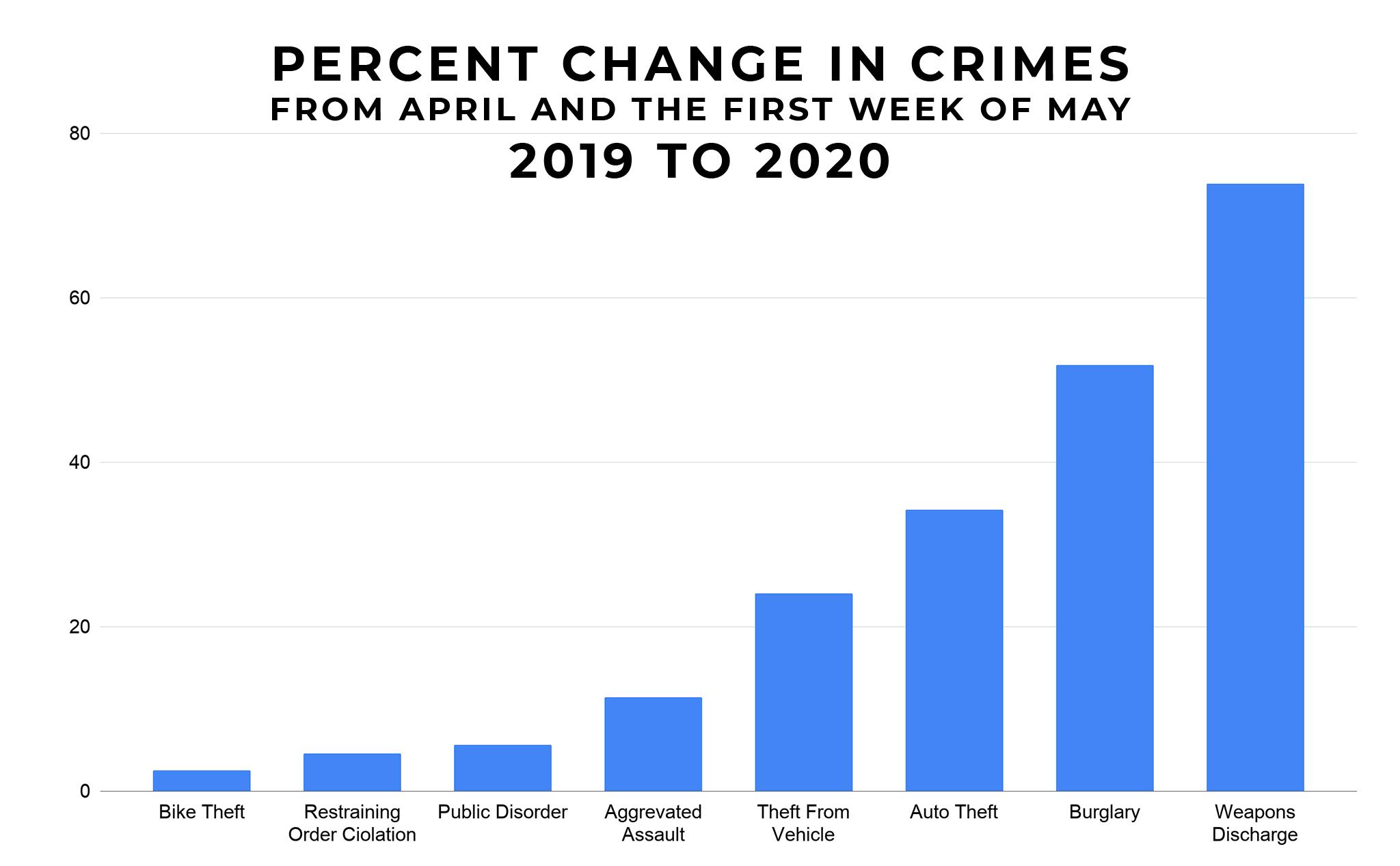
Robbery rose in 2008 but has decreased in 2020, likely due to stay-at-home orders, Pazen said. People are staying inside, so there's less opportunity for street muggings. On the other hand, burglaries are up. Pazen said some of that is due to empty businesses that now make easy targets. He said people who are staying at home are also more likely to leave their garage doors open and, later, find a pricey bike or tool has gone missing.
Pazen added that the department is using its data to predict where crimes may occur. Since Denver's stay-at-home order went into effect, he said, "56 times we have caught burglaries in progress." There were 456 burglaries recorded in April.
As for vehicle thefts, Pazen said new hot spots have appeared. Southeast Denver is one such region where the crime is newly spiking. Still, a map of these offenses shows they're happening everywhere.
April saw 578 vehicle thefts. Pazen said stolen cars tend to be big pickup trucks like Ford F-250s and F-350s, and that it's a statewide issue.
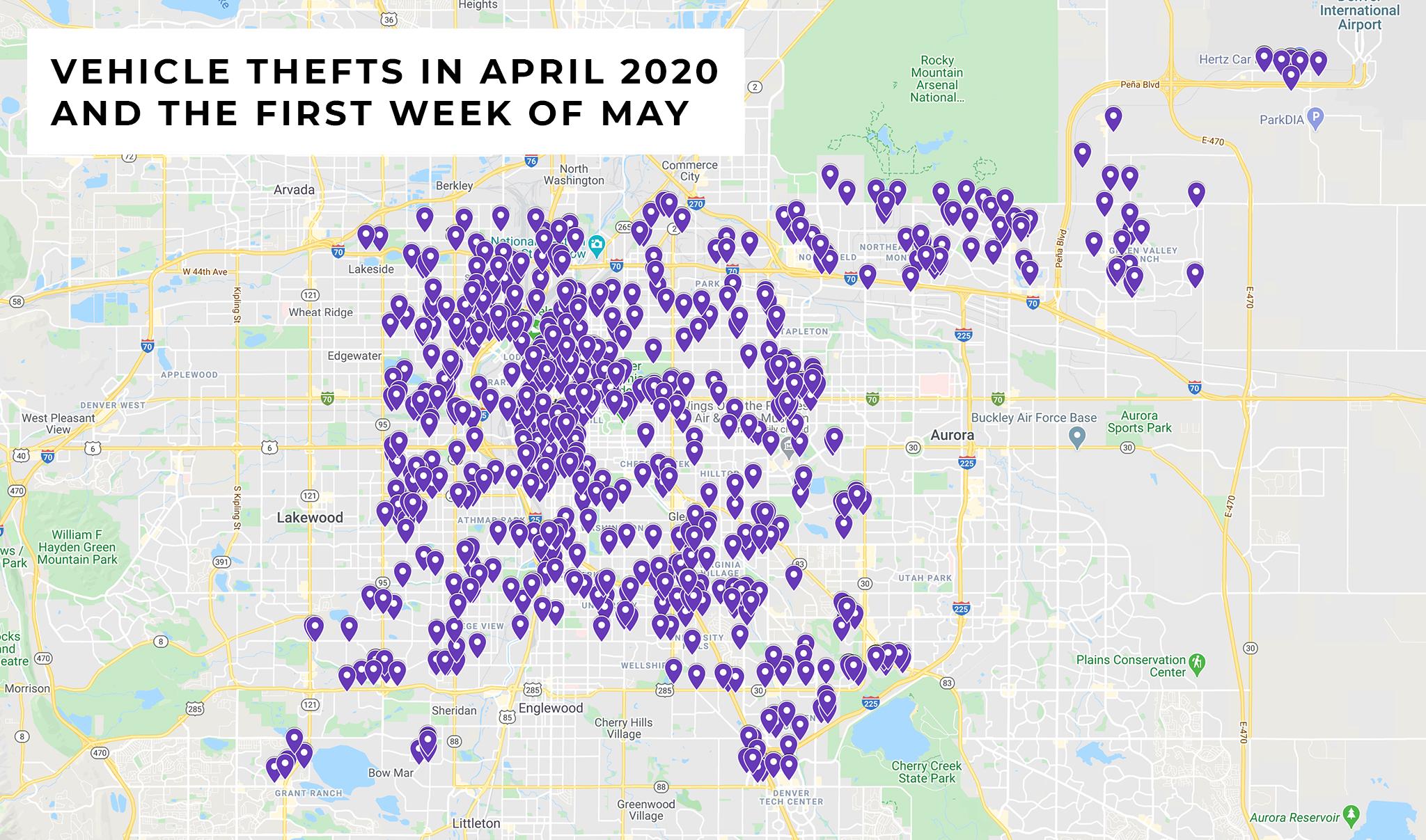
Pazen said some crimes have spiked because prisons and jails have released non-violent inmates in an attempt to thin numbers and reduce the possibility that COVID-19 could spread in these facilities.
He said Denver police have caught the same people committing multiple crimes since pandemic guidelines have changed how the justice system does business: "We have contacted and arrested several people for these high-level crimes and then rearrested them days later."
Considering the crime spikes after the 2008 recession, Pazen said he's concerned that the summer of 2020 will be a busy one for his officers.
How do we explain the low numbers?
Traffic accidents, hit-and-runs and public fighting charges were all down in April. Pazen said that's simply due to coronavirus shut downs. People aren't on the road and they're not out drinking.
He attributed the shut downs to lower trespassing charges, though that data point is a little more nuanced. Police generally can't issue trespassing citations if there's nobody around to call them. So people might be hanging out where they're not allowed, but a business owner might not be around to complain.
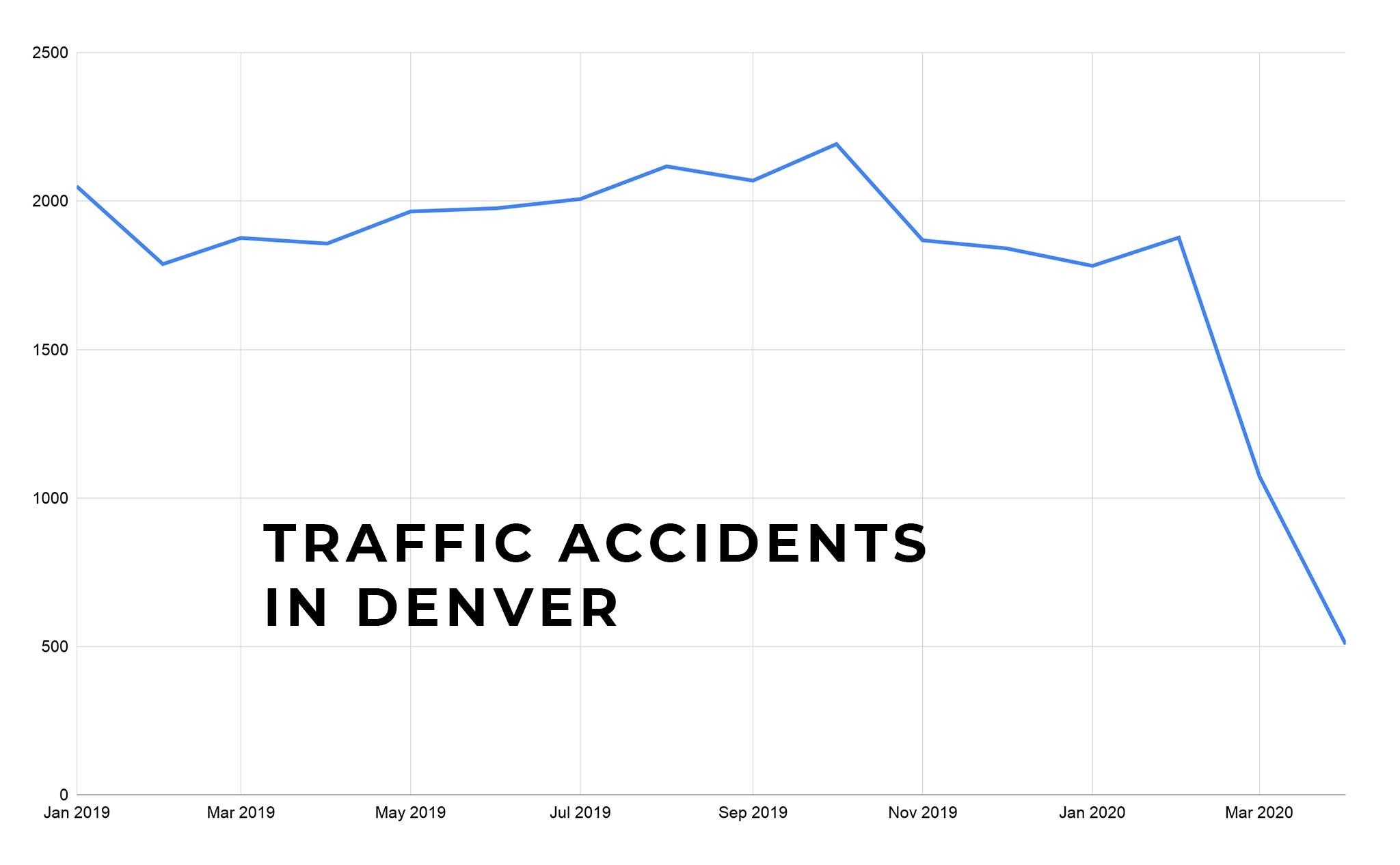
(Note: Jill Locantore of the pedestrian advocacy group WalkDenver made it known there are some who would prefer to see traffic incidents be referred to as "crashes" rather than "accidents." DPD uses "accident" in their data, so we've stuck with it here.)
The lower drug numbers may be the anomaly here. Pazen said the drug trade has stalled, creating black-market supply-chain issues.
"The access to the traditional sources of methamphetamine have been greatly affected," he said. "We have seen a spike in meth prices because of the basic supply and demand."
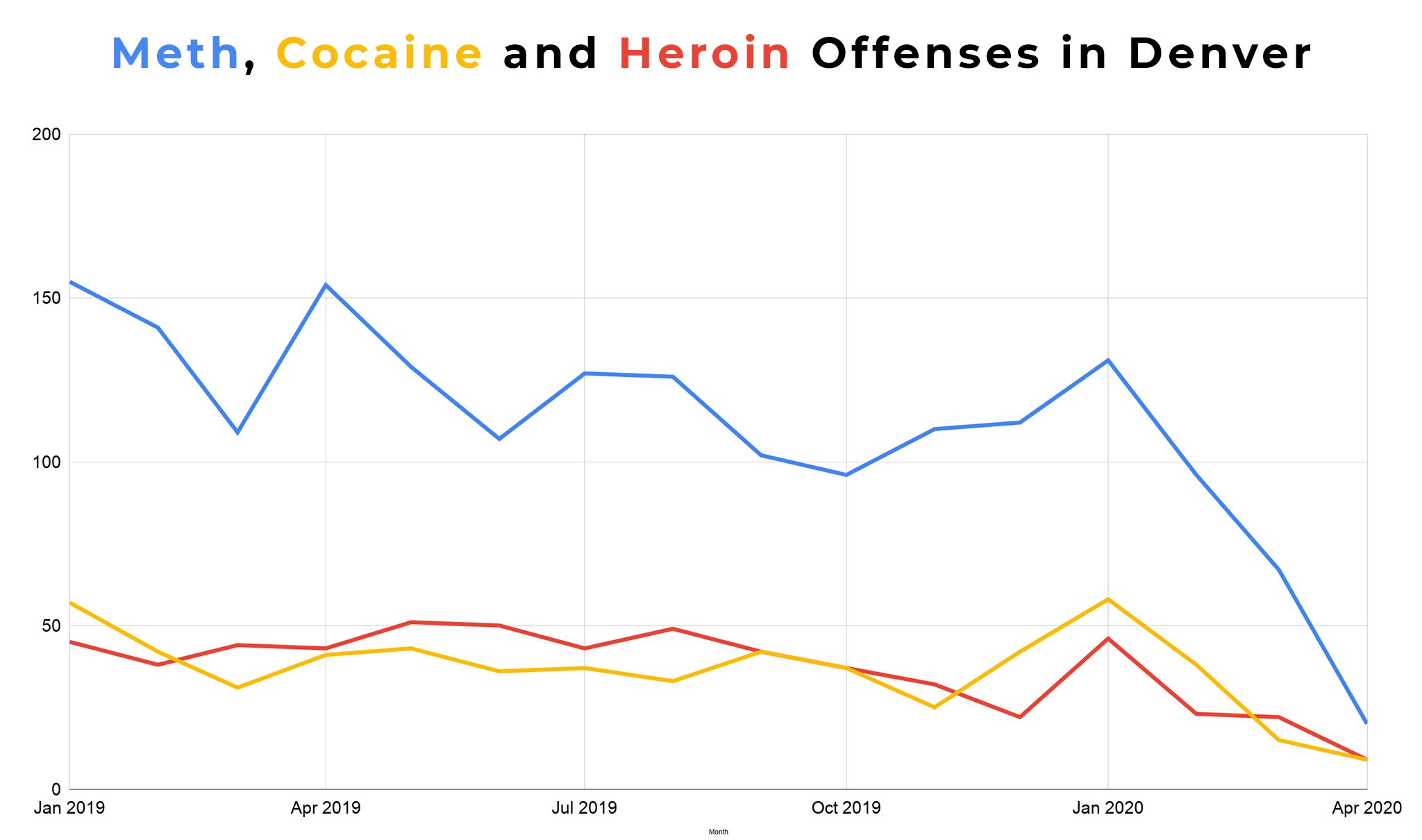
But Lisa Raville, who leads the Harm Reduction Action Center, said the clean-needle distributor is "busier than ever."
"We haven't seen much of a disruption at all," she said. "The supply chain appears to be just fine. Drugs sell themselves."
Instead, Raville pointed to a state law passed in 2019 that made most possession charges misdemeanors, which went into effect in March. She said law enforcement is probably unlikely to pursue charges for small amounts of meth, heroin and cocaine.
"I think it's just really not worth their time any more," she said.
While possession charges were the lowest ever in April, the numbers have been falling all year.
Raville said she's worried that overdoses may rise this year. Deaths related to fentanyl tripled in Denver from 2018 to 2019, and she thinks more people may be using as a result of the pandemic.
"We have seen a new amount of relapses due to newly unemployed, due to isolation, anxiety," she said. "We're really nervous about overdoses."

